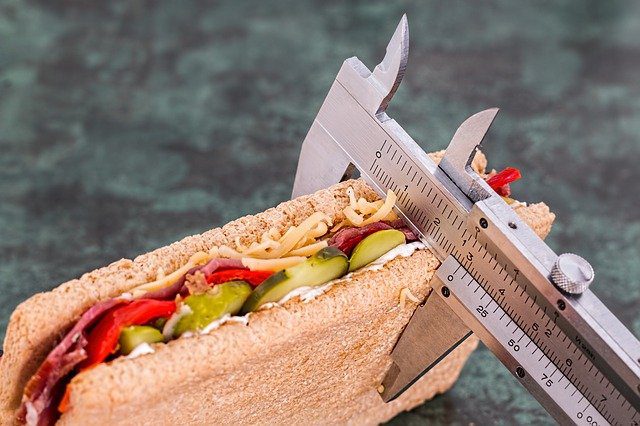If there is one topic for which there are more opinions than facts, it is how to lose weight effectively. From miraculous diets to completely bizarre exercises, there is so much conflicting information that almost anyone would doubt the correctness of both approaches.
In this article, we will explain how weight loss works and answer the question of a long-standing debate – what is more important for weight loss, exercise or diet?
How weight loss works
Our body is basically an organic machine that changes in response to what it faces, what is put into it and what it consumes.
Every second of every day our body expends energy to keep us alive and healthy. Restores and replaces cells. It goes through an immense amount of chemical processes at all times, produces heat, allows movement and much, much more.
Total daily energy expenditure (TDEE) is calculated based on four main factors – basal metabolism, thermogenesis (the process of heat production in organisms), programmable training, and non-exercise thermogenesis.
The food we consume contains nutrients that are used to produce energy. When we consume too much food, excess of that energy accumulates.
When we do not consume enough food, stored energy and other structures (sometimes muscles if there is a severe lack of energy) are broken down to produce energy.
Simply put, if you ingest less energy through your diet compared to the energy you expend, you will lose pounds.
Exercise
We have mentioned the body’s reaction to what it is facing, and by that we primarily mean not the external stimuli that the body encounters and adapts to – and exercise is the most prominent such stimulus.
This is important to emphasize because not all excess food will be stored as fat. If the body responds to stimuli such as exercise, nutrients will be used to build new muscle and / or recover existing ones. In addition, excess energy intake can be used to replenish internal carbohydrate stores because they are considered more valuable than additional fat storage.
There is a misconception that every weight gain is equal to fat gain. However, continuous overeating is needed to actually accumulate a tangible amount of fat. Daily weight changes are probably related to water retention (due to salt and other food intake) and food passing through the intestines.
Long-term changes in weight can be caused by changes in muscle mass and even bone mass. Scales don’t always have to be something intimidating and shouldn’t be the only indicator of your progress if you’re focused on weight management. Try focusing on exercise types that are good for getting rid of fat. For example, CrossFit is good for weight loss.
Exercise Vs. diet
The main argument of this long-standing debate is that it is simply not practical to solve a large calorie surplus solely through exercise. Or, as you may have heard, “you can’t beat a bad diet.”
In practical terms, this is true. Have you ever tried to ‘burn’ a 1200-calorie pizza? Good luck with ten trillion Marines’
But it’s not that simple because the amount of energy we get from food depends on the nutritional composition of the food itself, and how much it will accumulate in the form of fat will again depend on our stimuli and the distribution of nutrients in our body.
It is possible, however, that it is easier to create a calorie deficit through diet. You simply eat less than before (or if you monitor your calorie intake, you eat less than what you need).
How aggressively you go with your diet in this regard mostly depends on your goals and what you can tolerate. The higher the calorie deficit, the faster the weight loss, but such a deficit also affects hunger, performance, possibly muscle mass, and the relationship with food itself.
The more conservative your diet, the longer it will take you to lose weight, but you are more likely to retain all of the above factors, and to feel less hungry and in need of food.
Also, you shoul know how does alcohol affect your weight, since you may be eating right, but drinking too much alcohol which may keep you away from your weight loss goals.
Why both are important
Although it is easier to cause a calorie deficit through diet and thus lose weight, diet and exercise are also important for long-term success (especially if your goal is to build a body and develop fitness).
Large analytical studies (meta-analysis) examined combined data on weight loss programs, comparing only diet, exercise alone, and their combination.2
They found that although short-term diet programs and combined programs achieved similar results, combined programs were the only ones to achieve successful long-term weight loss.
This underscores the importance of focusing on healthier behavior as a whole rather than some extreme decision for short-term benefit.
Yes, rapid initial weight loss can increase motivation, but it is usually accompanied by a rapid weight gain (because most of these weight changes boil down to changes in water, internal carbohydrates, and intestinal foods), which can be equally demotivating.
If you’re targeting long-term weight loss, focus on developing healthier eating and exercise habits, not just one of the two.
Diet can have the most impact on your weight and body fat, but you can’t forget the value of exercising in maintaining and increasing muscle mass and protecting and increasing bone density.
A message to think about
So, the answer to the initial question of whether diet or exercise is more important for weight loss is in our opinion – both.
There are many different factors to consider when it comes to losing weight and managing it, but they can all be improved if we just focus on healthy behavior.
A diet aimed at managing weight and promoting our goals (without sacrificing social experiences and the joy of eating at certain times) as well as a consistent, fun (and progressive depending on the person and their goals) exercise schedule are a sure path to success.
Remember, a scale is ultimately just a number that doesn’t always reflect your true health.
Our articles should be used for informational and educational purposes only and are not intended for medical advice. If you are concerned about your health, consult a professional before taking dietary supplements or making significant dietary changes.










